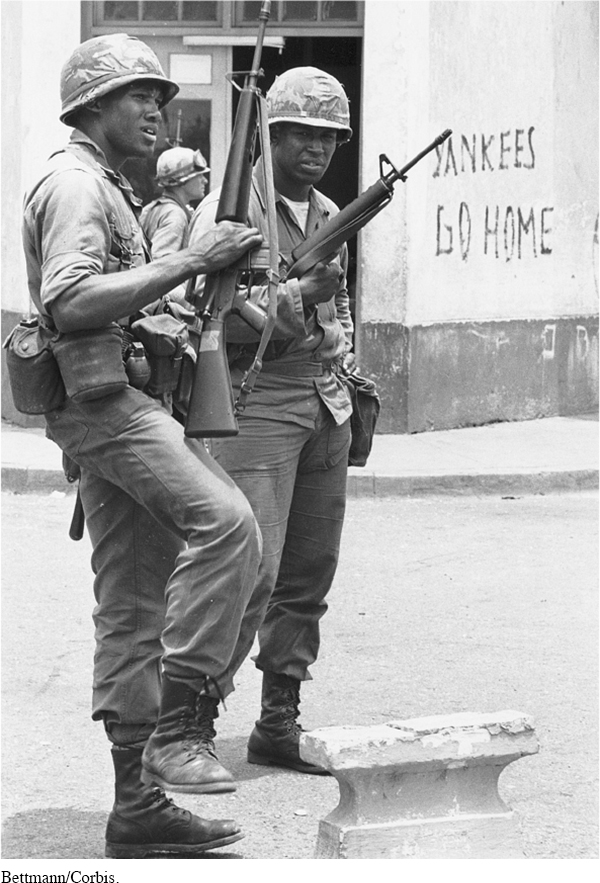The American Promise: Printed Page 839
The American Promise, Value Edition: Printed Page 762
The American Promise: A Concise History: Printed Page 869
Preventing Another Castro in Latin America
Johnson also faced persistent problems closer to home. Thirteen times during the 1960s, military coups toppled Latin American governments, and local insurgencies grew apace. The administration’s response varied from case to case but centered on the determination to prevent any more Castro-
The American Promise: Printed Page 839
The American Promise, Value Edition: Printed Page 762
The American Promise: A Concise History: Printed Page 869
Page 840In 1964, riots erupted in the Panama Canal Zone, instigated by Panamanians who viewed the United States as a colonial power because it had held the territory since early in the century (see “The Big Stick” in chapter 21). Johnson sent troops to quell the disturbance, but he also initiated negotiations that eventually returned the canal to Panamanian authority in 2000.
Elsewhere, Johnson’s Latin American policy generated new cries of “Yankee imperialism.” In 1961, voters in the Dominican Republic ousted a longtime dictator and elected a constitutional government headed by reformist Juan Bosch, who was overthrown by a military coup two years later. In 1965, when Bosch supporters launched an uprising against the military government, Johnson sent more than 20,000 soldiers to suppress what he perceived to be a leftist revolt and to take control of the island.

This first outright show of Yankee force in Latin America in four decades damaged the administration. Although Johnson had justified intervention as necessary to prevent “another Cuba,” no Communists were found among the rebels, and U.S. force kept the reform-